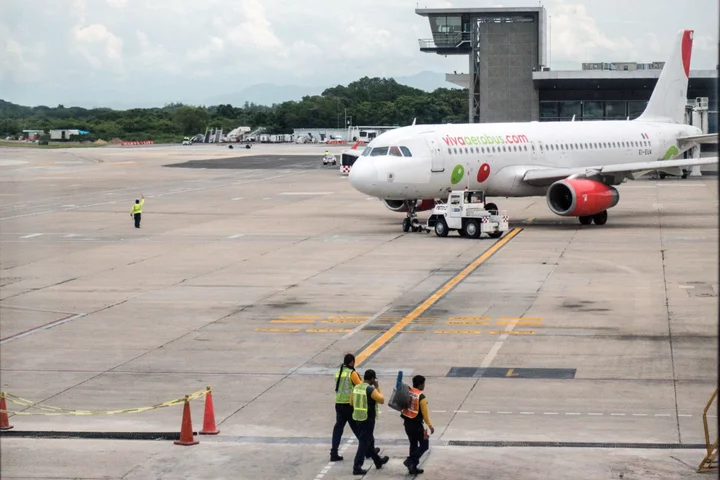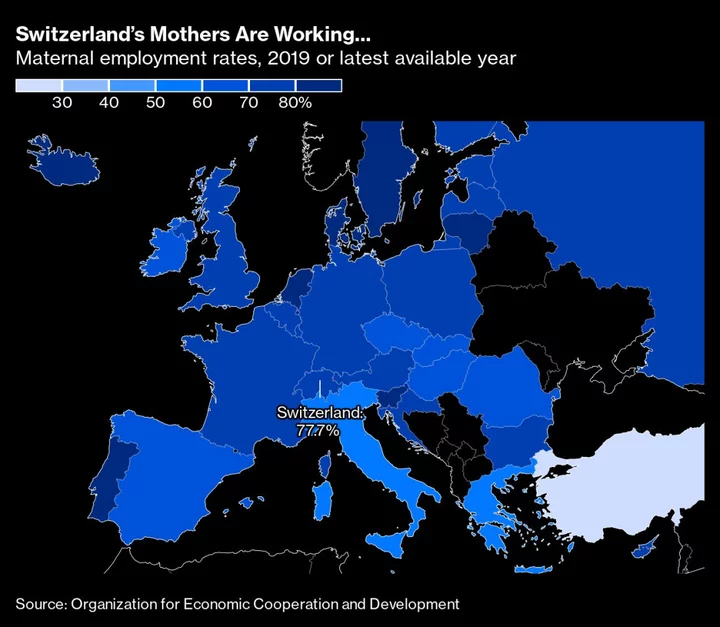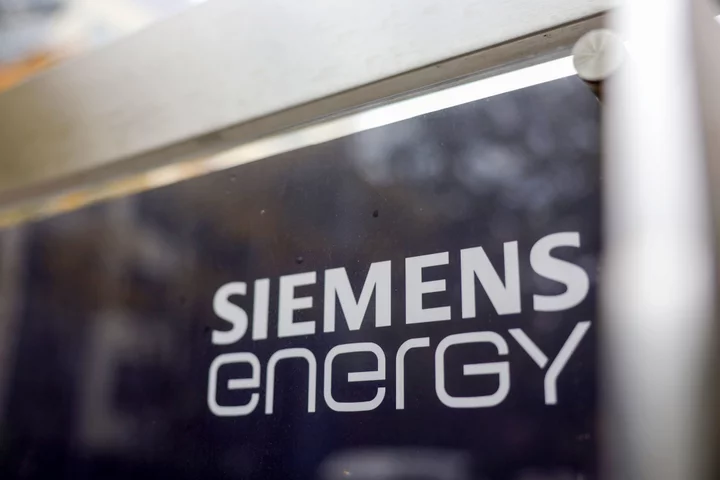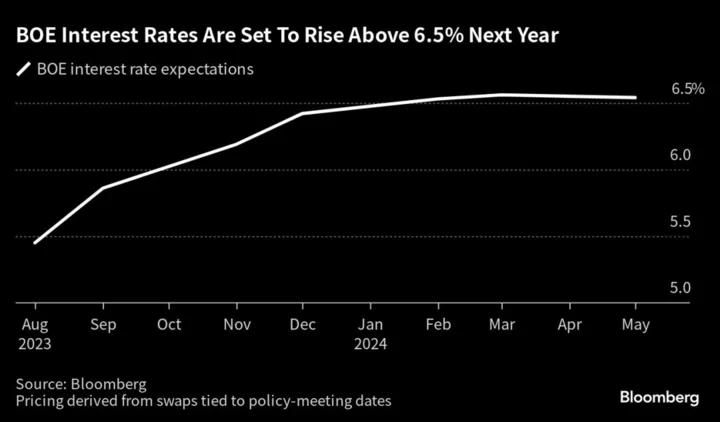Mexico’s Grupo Viva Aerobus SAB signed a preliminary order for 90 Airbus SE A321 jets as the carrier looks to expand its international and domestic operations.
The European planemaker said that the so-called memorandum of understanding would bring Viva’s order book to 170 A320 family aircraft. Separately, jet engine maker Pratt & Whitney said that the new aircraft would be powered by its GTF engines.
Bloomberg News first reported last month that Airbus was in talks with Viva for a large narrowbody aircraft order.
“This is our largest purchase yet, with the aim of growing the business and renewing our fleet,” said Viva Aerobus Chief Executive Officer Juan Carlos Zuazua in an interview. “This model will allow us to grow both nationally and internationally.”
Viva had a fleet of 70 Airbus aircraft at the end March, consisting of a variety of A320 and longer A321 models, according to the carrier’s website. The airline said it has the youngest fleet in Mexico and one of the most up-to-date in North America. The airline is also still waiting for 25 aircraft from its last order of 80 planes from Airbus, Zuazua added. He declined to disclose the expected delivery times for the planes.
Until recently, Viva Aerobus was fourth in Mexico’s domestic market by passengers, carrying 9.1 million domestic travelers in 2018. It trailed Volaris, Aeromexico and Interjet. Now the airline has overtaken legacy carrier Grupo Aeromexico SAB in domestic passengers, increasing the need for additional aircraft to drive growth.
The company doesn’t have to decide immediately how it will finance the purchase, Zuazua added, but will likely involve a mix of leasebacks and financing leases with a bank, and is exploring whichever the lowest-cost option is.
Read More: Viva Aerobus CEO Bets AMLO’s Maligned Airport Becomes Mexico Hub
In the short term, Viva Aerobus will use the aircraft to continue growing locally, with currently 80% of routes being domestic, he added. The company is eyeing adding 10 more operational bases in Mexico in the next couple of years to its current six, a process that involves having certain aircraft and crew stationed in those cities. Viva opened a base in Merida, Yucatan this year and will likely open one more in 2023, expecting growth at a pace of about two bases per year.
“This is a lengthy process that requires more maturity, because it involves choosing where to station aircraft and relocating people,” he said. “It’s also an investment that can be transformational for a region and a city, as well as allow for even cheaper flights.”
Viva also sees “huge potential” in growing its US routes amid expectations that Mexico will recover its Category 1 rating from the Federal Aviation Administration in the coming months, allowing for more flights to the Northern neighbor, Zuazua added. The company’s also awaiting approval for a commercial agreement with Allegiant Travel Co. that would allow for more connections between medium and small US cities to touristic destinations in Mexico.
Other key points from the interview:
- Viva is also eyeing adding routes to Canada. but that wouldn’t happen until 2024
- It’s also weighing adding more routes to South America after recently launching four routes to Bogota and a route to Ecuador
- The company is not currently looking into an initial public offering, Zuazua said
- Viva isn’t currently weighing selling more public debt, though it has the option of expanding a 500 million Mexican peso ($29.4 million) sustainability-linked bond
- The company’s needs for aircraft are now covered and it isn’t expecting to order more at this time
- The strong Mexican peso is a “temporary benefit” given that its costs are denominated in dollars but with ticket prices in pesos, but in the long term it may not be a positive for the country’s economy at large
- Occupancy for flights coming into and out of the Felipe Angeles International Airport is around 83%, only 5 percentage points below its average occupancy of about 88%, after just over a year operating there
- Adoption of the Felipe Angeles airport should rise as the government continues infrastructure works such as the expansion of a highway leading there and the launch of a suburban train expected for early next year
- Zuazua said he doesn’t see a huge difference from the Benito Juarez being run by the navy rather than the national government
- Viva is confident that Pratt has “resolved its main issues” and is “enthusiastic” that its innovative Geared Turbofan engine will deliver on lower fuel consumption
--With assistance from Andrea Navarro.
(Updates with comments from company CEO throughout)









